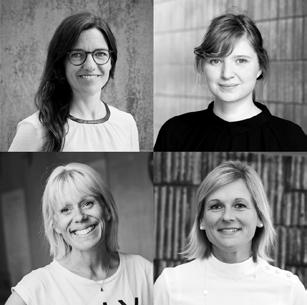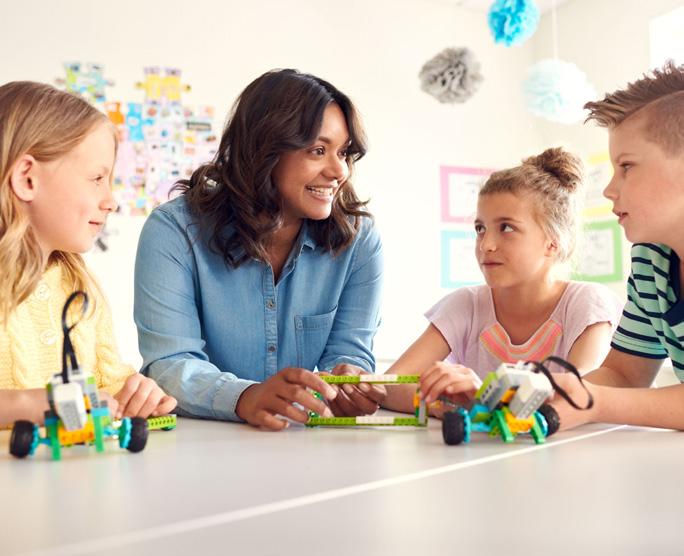KINNARPS CL ASSROOM BY
HJÄRNBERIK AD & K AK A ARCHITECTS
HJÄRNBERIK AD & K AK A ARCHITECTS
The teenage brain has special needs that set requirements for classroom design. Hjärnberikad and KAKA Architects have put their clever heads together and created a varied, exciting and relaxing classroom that gives the teenager confidence and a desire to learn. For more than a decade, Linda Bellvik and Ulrika Ahlqvist have been working to convert brain research into practical pedagogy for schools, companies and organisations. Hjärnberikad wants to work for a better understanding of how our brains work and how they are affected by the environment around us. Linda and Ulrika have developed a concept with ten good habits related to food, movement, sleep and physical and mental environment that contribute to stimulating the health and well-being of the brain. The methodology is based on collaboration with leading brain researchers, including Rolf Ekman, who is a brain researcher in neurochemistry.
“We share a common approach, in which the physical, social and pedagogical learning environments are equally important in creating an optimal, complete learning space,” says Ulrika
We have created a classroom that takes account of the needs of students in classes 6 to 9, and is sustainable in the long term. The idea is to give the teenage brain the right conditions, both mental and physical.
Ahlqvist at Hjärnberikad. The teenage brain is a challenge, according to Linda Bellvik at Hjärnberikad. “The teenage brain is a challenge, because it has a completely different chemistry than the child’s brain or an adult brain. It has an increased need for sleep and has also gone a little off course when it comes to developing executive functions such as control of impulses, management of feelings, logical thinking and risk assessment. The teenage brain is in a sensitive phase
This classroom for students in classes 6 to 9 has been designed in close collaboration with KAKA Architects,
and we therefore need to treat it with particular care.” A classroom that supports teenagers’ development and
Annika Hedeblom and Bodil Perneborn. Hjärnberikad and
learning therefore needs to offer movement and stimulation in
KAKA have been working together for a long time to realise
combination with security and opportunities for recuperation.
brain-friendly environments on behalf of schools and companies and share the vision of more inclusive school
FURNISHED FOR MOVEMENT
environments that contribute to improved well-being.
This classroom encourages variation and movement in a
At KAKA, around 15 architects work on designing new pre-
number of ways. Divided into a number of different zones,
schools, schools and offices, and their commissions cover
it gives students and teachers the opportunity to change
the whole spectrum from interior design to construction
the furnishing of the classroom as required, explains
architecture and urban planning.
Bodil Perneborn at KAKA.
12






